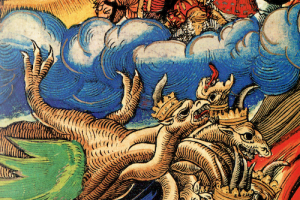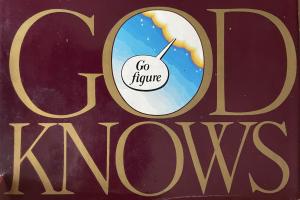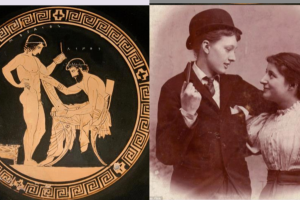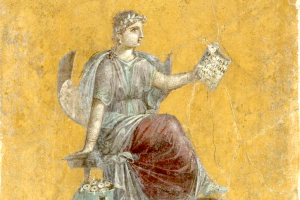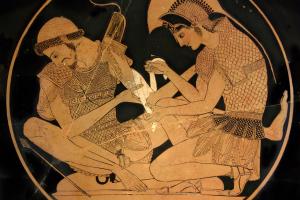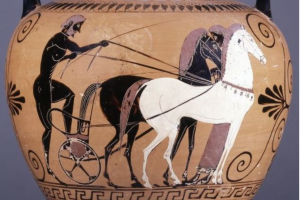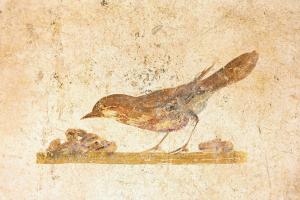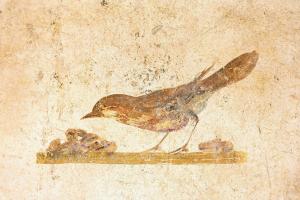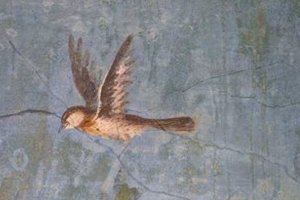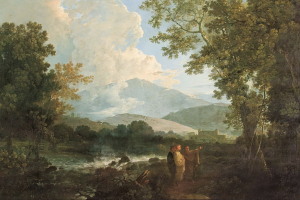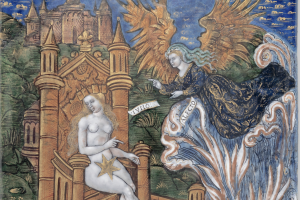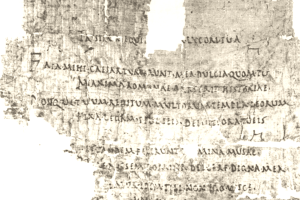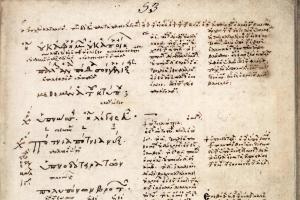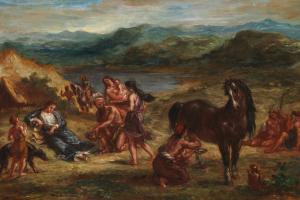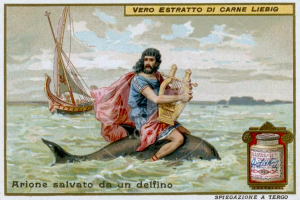Spring 2023
Who built the Parthenon and why? Where did the Olympic Games truly get their start? Who were the ancient Greek gods, and how do we know? Join us in AGRS 17A as we explore the art and archaeology of ancient Greece and provide some answers to these questions and many more!
An exploration of the archaeological and textual evidence for the city of Rome during the earliest centuries of its existence.
An examination of the history of ideas about the soul’s postmortem fate in the ancient Mediterranean world.
An investigation of the conceptions of divinity put forward by the principal philosophers and philosophic schools of thought in ancient Greece.
This course will study sexuality and gender in two very different historical periods—ancient Greece and 19th-century Europe. We will read literary texts, historical documents, and critical essays to constitute a comparative analysis of systems of gender and sexuality.
The second half of a two-semester language sequence equipping students to read ancient Greek, the language of Homer, Sappho, Sophocles, and Plato.
Reading of selections from Homer’s Iliad in the original ancient Greek. In addition to developing language skills, we will examine the poem’s depictions of justice, emotion, violence, community, gender, mortality, politics, and how humans are to behave in the world.
In this course we will read and discuss Plato's Phaedrus, one of his most beautiful and fascinating dialogues. Note: course experience in ancient Greek language equivalent to three semesters of study is a prerequisite.
The first half of a two-semester language sequence equipping students to read and translate Classical Latin.
The first half of a two-semester language sequence equipping students to read and translate Classical Latin.
The second half of a two-semester language sequence preparing students to read Classical Latin.
An introduction to reading and translating Latin prose through the works of two of the most famous Latin prose authors of the Republican period: Caesar and Cicero.
In this course we will focus on reading in Latin extensive selections from Vergil’s Aeneid.
Read in Latin the love poetry of Propertius, Tibullus, and Ovid, and explore the wide range of poetry written in elegiac couplets.
The proseminar provides experience of the tools of advanced research in classical texts and gives the student a basic understanding of the sources, materials, and techniques related to the documentary evidence that underlies a great proportion of classical scholarship.
Second half of year-long survey of Latin literature.
In this seminar, we will read substantial portions of Herodotus’ Histories, combined with other texts and traditions with which he was in conversation. Assuming Herodotus’ capacious, pre-disciplinary, and experimental text, we will explore his many genres and interlocutors.
Supervised teaching of lower division Greek, Latin, or Classics or of discussion sections in Classics.


